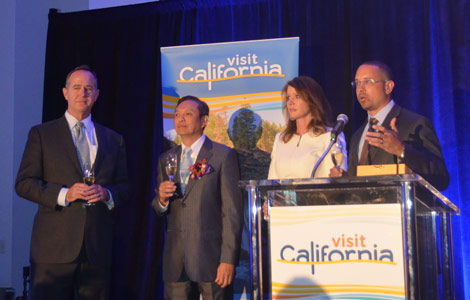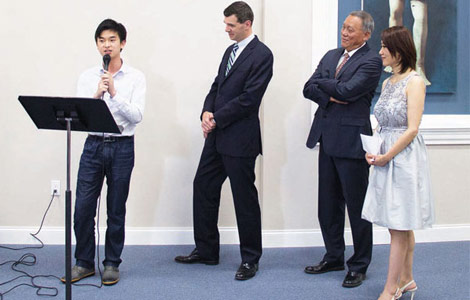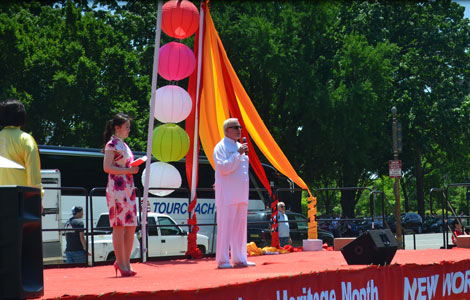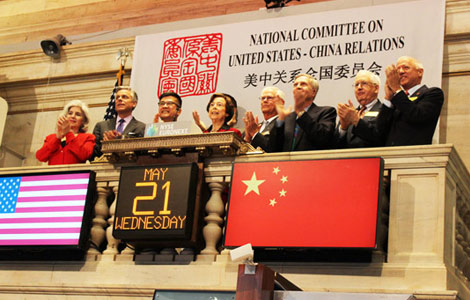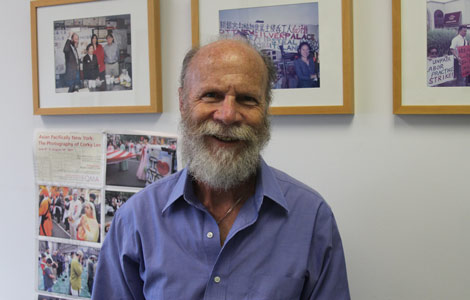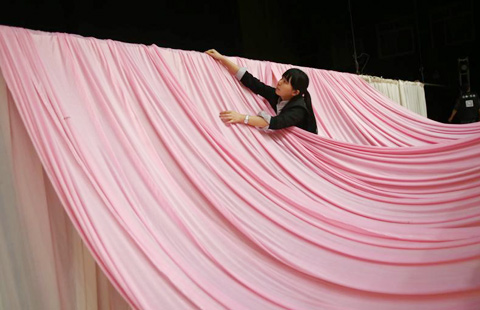Tennessee factory brings needed jobs
Updated: 2014-05-27 11:11
By Michael Barris in New York (China Daily USA)
|
||||||||
A Chinese company has brought relief to the hard-hit US South by opening a Tennessee boot making factory that will employ up to 109 people by the end of the year, continuing a modest trickle of manufacturing jobs back to the US from China.
Footwear Industries of Tennessee Inc (FIT USA), a unit of Merchant House International Group, a Hong Kong-based maker of leather shoes, Christmas ornaments and kitchen textiles, last week opened a 40,000-square-foot plant in Jefferson City Industrial Park in east Tennessee that will make men's leather boots and shoes. The plant opened with 50 workers but FIT USA said it plans to boost the workforce to 109 by year's end to meet a production goal of 250,000 pairs of boots per year.
The Tennessee plant opening reflects the company's "broader vision" of its business, Chairman Loretta Lee told China Daily. "By streamlining the supply chain, we not only get closer to the markets and to our customers, but we take into account global sustainability," Lee said. "It is a win-win for all."
Lee called Jefferson City "an excellent location for our company because it is centrally positioned in the eastern United States, has excellent logistics infrastructure, and a workforce with skills and experience in the apparel industry."
Merchant House International has made men's work shoes in China for more than 30 years. About 5,000 workers produce more than 5 million pairs of men's work shoes annually from the company's factories in the northern Chinese city of Tianjin.
Although China's relatively low labor costs saw it blossom into a global manufacturing capital in the 1980s, its prosperity and rising wages have driven labor costs up 15 to 16 percent annually in recent years. By contrast, US labor costs have risen just 2 to 3 percent annually, according to Yingying Xu, an economist with the Manufacturers Alliance for Productivity and Innovation, a Virginia-based manufacturing industry research group.
As companies move to take advantage of the lower US labor costs, the country is seeing a spike in new domestic and foreign manufacturing investment and a stream of Chinese companies setting up shop in the country. Companies that had outsourced production to China also are "seeing the sense in keeping production closer to their (US) markets to keep down the cost of transportation, logistics, intellectual property and other expenses related to operating factories thousands of miles away from a home base", Xu said in an interview.
The US's lower energy costs due to its plentiful supply of cheaply produced natural gas also attract manufacturing investment from China, the economist said.
The increased US investment comes as China's central government encourages its companies to look abroad to gain expertise and recognition. The South is particularly attractive because the lack of a large union presence in the region gives foreign companies flexibility in managing a workforce in line with changing demands, Xu said.
Xu cautioned against calling the pickup in US manufacturing investment a "trend", despite the reported recent resurgence of US manufacturing. "This is all anecdotal evidence," Xu said. "It hasn't shown up in statistics yet."
Nevertheless Jefferson City's leaders hailed the factory opening as relief for a hard-hit manufacturing region.
"Jefferson City is delighted to welcome The Merchant House International Group," Mayor Mark Potts said. "The citizens of Jefferson County have a work ethic without parallel and they will help to make this company a successful business and a great corporate citizen."
Merchant House International board member Clifford Einstein called the factory opening "historic".
"Footwear manufacturing was a big part of America several decades ago," Einstein said. "Little by little they all ran away to where labor was cheaper. But things do run in cycles. For years, we put hard-working Americans into our boots, and now our boots will be putting hard-working Americans into great jobs. It's a great fit for America."
Raymond Cheng, CEO of SoZo Group, a Hong Kong-based economic development consulting company with a growing presence in the US South, praised Lee's "vision and determination".
"Loretta has the vision to bring manufacturing back to the US and to lower industry's carbon footprint," Cheng said. "She is providing Chinese manufacturers with a roadmap on how to do it."
The factory opening comes as municipalities in the South are engaged in a grassroots effort to bring manufacturing jobs back to the area. In March, about 40 communities from six Southern states participated in a three-day US China Manufacturing Symposium in Dothan, Alabama, co-presented by the city and SoZo. About 400 Chinese and US government and business leaders met in the Southeast Alabama city for what was billed as an "open discussion of manufacturing expansion and job creation".
In the late 20th century, as the once-agricultural South enjoyed a manufacturing boom, companies such as General Motors Co built a manufacturing plant in Spring Hill, Tennessee. As hundreds of thousands of regional factory jobs disappeared due to automation and outsourcing to cheaper offshore labor markets, by 2011, the South contained nine of the 10 poorest US states.
michaelbarris@chinadailyusa.com
(China Daily USA 05/27/2014 page1)
Most Viewed
Editor's Picks
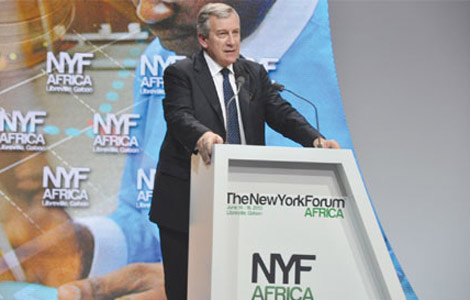
|

|

|

|

|

|
Today's Top News
Chinese Consulate condemns UCSB rampage
Tensions rise as fishing vessel sinks
Poverty high with NYC Asians
Philippine court asked to halt new US defence pact
US to withdraw more troops
Snowden: I was trained as spy
US' industrial cyber espionage
Man sentenced in US for smuggling
US Weekly

|

|
